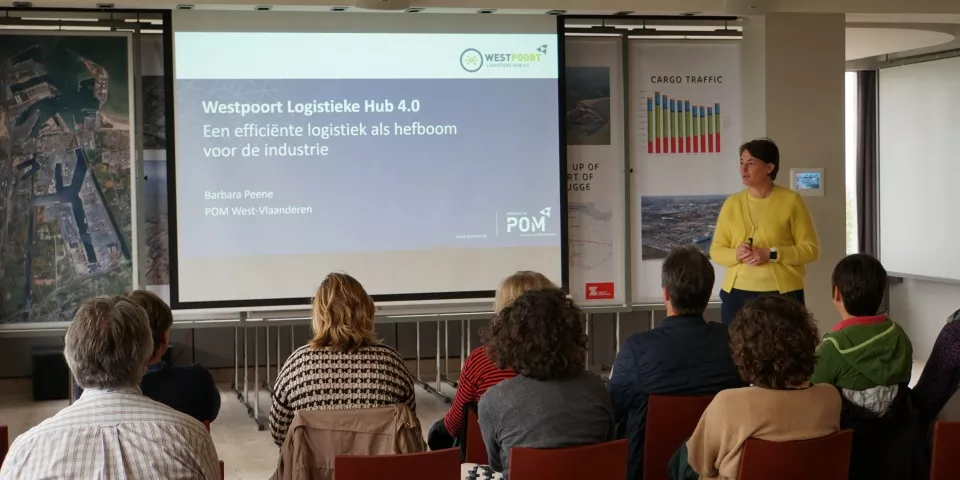Physical Internet: promoting sustainable transport
Barbara Peene is coordinator of the project ‘Physical Internet’ at the Provincial Development Agency West Flanders (POM West-Vlaanderen). The provincial authorities strive for the development of an efficient, reliable and sustainable logistical system, tailored to the needs of a future-oriented industry 4.0. The project has been aptly named ‘Westpoort: Logistieke hub 4.0’.
“The optimisation of logistic flows can result in considerable cost savings, the improvement of logistic services and a smaller carbon footprint for the industry. The Provincial Development Agency West Flanders acts as facilitator in this process.”
Barbara Peene adds that the physical Internet should become a reality by 2030. “You could compare it to sending an e-mail. You don’t know the route your e-mail follows, but you do see it reaches its destination. The physical Internet works according to the same principles. You send something, and different modes of transport are used to take it to its destination.”

Concrete project are already tested, for instance autonomous navigation on the river Yser and the Ieperlee canal between Diksmuide and Ypres. “The Physical Internet is based on the use of hubs to which goods are sent and from where they depart. These direct lines are demonstrably more efficient and more environmentally friendly.”